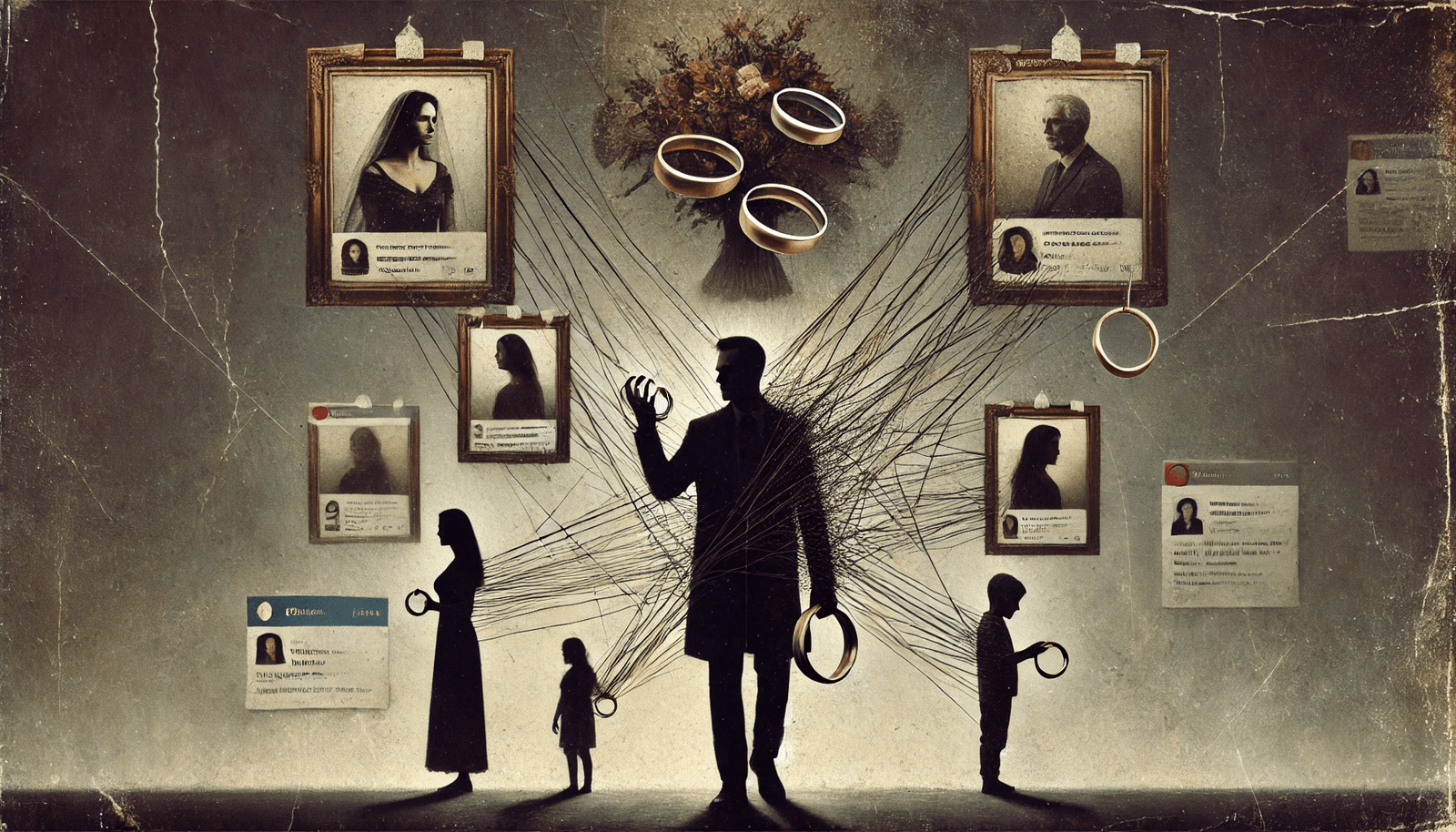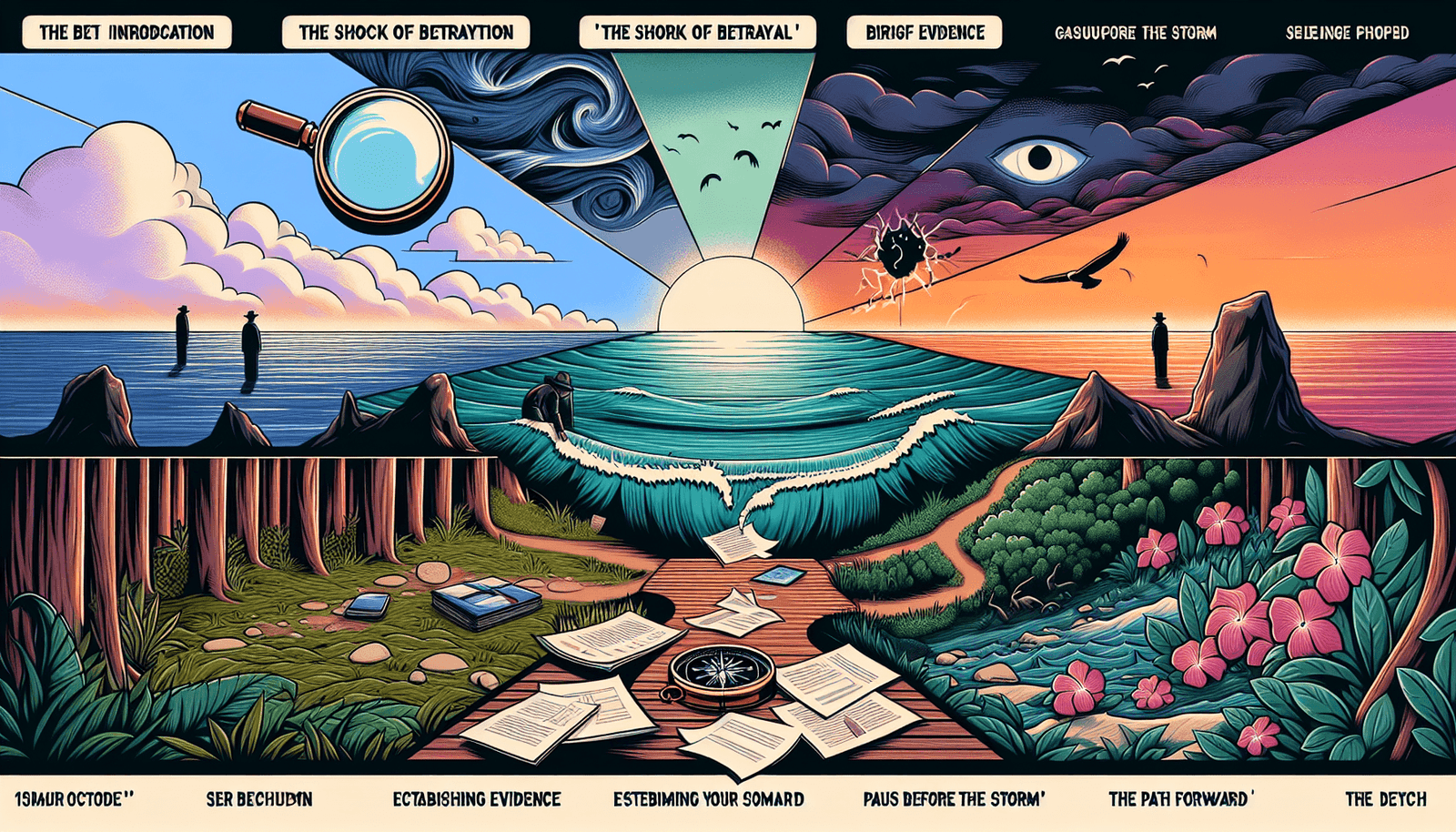There are family secrets, and then there’s my family—the kind of drama that could put a reality TV producer’s kid through college. My father is a serial cheater, a master manipulator with a knack for collecting wives like most people collect action figures. The irony? He doesn’t actually own a single one of them.
To understand the sheer bewilderment of my upbringing, let’s rewind the clock to a time when my sister and I were simply trying to survive the chaos that was our home life, the way one might endure an overly long family saga: with a cup of coffee, an eye roll, and an existential crisis. My father was just 22 when he had me—think of him as a baby parent, which is probably why we all ended up as storylines in a soap opera.
His first marriage to my mother can best be described with a series of unfortunate events. They wed, divorced, remade their sacred vows, and then—surprise!—he cheated again. It’s like watching someone binge-watch a terrible sitcom where you know the punchline before the last commercial break. I was twelve when the charade finally cracked. I caught him in the act—literally. There he was, mid-text with some stranger on a dating app, while I was just trying to Google “how to understand high school algebra.”
Since then, my father’s life has resembled an extended audition for a part in “How to Lose a Wife in 10 Days”—except he never actually lost any of them, merely amassed a new collection. He went on to marry two more times, each union ending with the same sordid narrative: lies, betrayal, and his signature move—buying engagement rings off of Amazon, which is strangely ironic given that he couldn’t even check out at a car dealership.
Imagine my surprise when I discovered that this charmer uses fake dating profiles to cheat across the United States like a modern-day Don Draper—minus the charm, the suit, and the ‘working for the man’ part. Instead, he opts for the distinguished persona of a down-on-his-luck, charming rogue who’s revered and trusted by women of faith. It’s like he’s read the script on how to create a persona that disguises himself as a hero, even while he’s busy plotting his next betrayal in the shadows.
Every new relationship starts off with the old tricks: he convinces them he can change, while simultaneously uprooting their lives like a particularly invasive weed. Picture this: he preys on their kindness, secludes them from family, and somehow manages to financially drain them. By the time they discover the truth, it’s just too late—like that moment you finally put down the romantic comedy that had a twist ending you could’ve written by the third act.
I wish I could say my sister and I were helpless bystanders, but we’ve voiced our concerns to a few women who happened to cross paths with our father’s nefarious tales. “Oh, so you thought he was an upstanding citizen? Funny how that’s the character he plays best, but we hold the behind-the-scenes footage.”
What gets me the most is this current woman—she’s two years older than me, with three kids, and my father is 18 years her senior. If life were a movie, this would be the part where she gets her own montage of “girl power,” but reality, as you might have guessed, is often decidedly less glamorous. Despite the evidence we have—text messages, receipts—the stonewalling of love holds strong, especially when a person has invested not just their heart, but also their bank account.
There’s a Facebook group where many women have come forward, sharing their stories—a virtual support group of sorts dubbed ‘The Daughters of Deceit.’ In this digital age, it seems appropriate that my father’s failings would find an audience on social media, like a really bad viral video. But these women still choose to believe in him, eyes wide shut, as if he were a poorly timed magic trick gone awry.
So how do I help this woman who is willingly trapped in my father’s web of deceit? It feels akin to trying to pull off a Band-Aid from a hairy arm. She’d rather remain in denial than face the truth, allowing him to spin her life’s narrative into one built on a foundation of quicksand.
All I can do, I suppose, is gently offer support to her kids, reminding them that sometimes the villain is really just a nostalgic protagonist in someone else’s tale—the one that’s far less charming in real life. Maybe she’ll eventually open her eyes, but until then, I’ll keep my deadpan wit close, ready to catch her with the cold, hard truth when she finally cares to listen.



